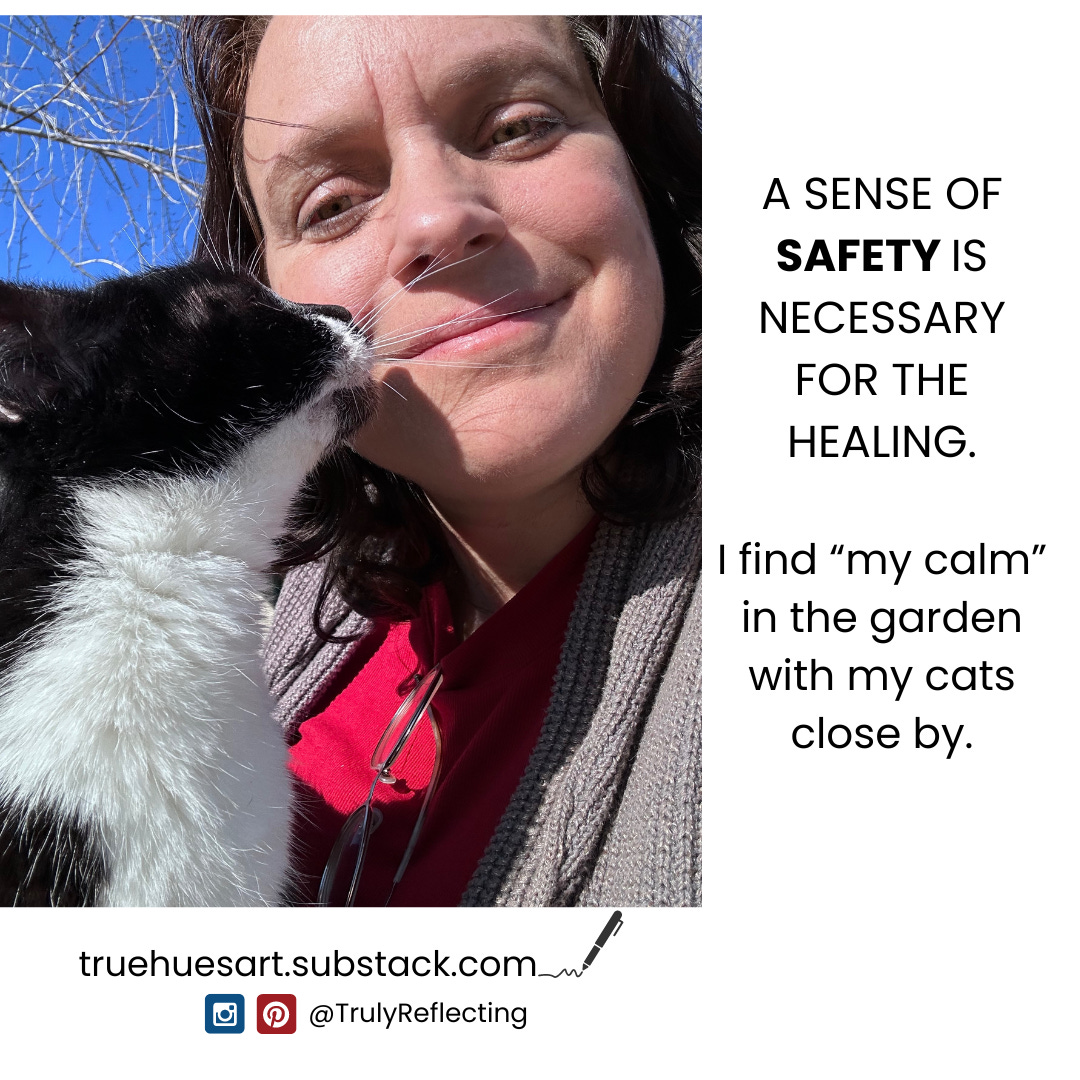Healing from Trauma: Why Rushing Won't Help
Have you ever felt so weighed down by distress that you just wanted an immediate escape? The hope is often that there's a quick fix, a magic formula that can heal us in a flash. Unfortunately, I have to be the bearer of bad news: true healing cannot be rushed. However urgent your need for relief may feel, like all good things, it takes time. But all is not lost! I promise there can be a place where the hurt isn’t as intense and your inner strength isn’t constantly battered.
Why Healing Can't Be Rushed
It's natural to feel frustrated by the slow pace of healing. The pain and hurt seem to have already stolen so much of your time and energy. The thought of spending even more time focused on it can be overwhelming. You may want to dive headfirst into whatever promises the quickest relief. But let me tell you from personal experience: that's not how healing works.
The First Step: Finding Safety
The healing journey begins with creating a sense of safety. This might sound simple, but it's foundational. When we're hurt, our sense of safety is often shattered. Whether the hurt is physical, emotional, or psychological, rebuilding a safe space for ourselves is crucial. This safe space can be a physical location, a supportive community, or even a mental state where we feel secure and protected.
CONSIDER: Where and with whom do you feel most at ease?
The Role of Time in Healing
Time is an essential element in the healing process. Just as physical wounds need time to close and repair, emotional and psychological wounds also need time to mend. Rushing this process can lead to incomplete healing, where old wounds might reopen, causing more pain down the line.
Consider the analogy of a broken bone. If you remove the cast too early, the bone hasn't had enough time to heal properly and is at risk of breaking again. Similarly, rushing through emotional healing can leave you vulnerable to further distress.
Embracing the Process
One of the hardest parts of healing is accepting that it’s a process, not a destination. There will be good days and bad days, moments of progress and setbacks. It's important to be gentle with yourself and acknowledge that healing isn't linear.
Building a Support System
Healing doesn't happen in isolation. Surround yourself with supportive people who understand what you’re going through. This could be friends, family, or a therapist. Having a network that can provide empathy, encouragement, and a listening ear can make a world of difference.
CONSIDER: If you have been wounded deeply, establishing in-person relationships might be terrifying. In the age of virtual communication, it might be a good place to start with an online group of like-minded individuals who share the same hobbies. Grow from there.
Engaging in Self-Care
Self-care is a vital part of healing. This includes physical self-care like eating well, exercising, and getting enough sleep, as well as emotional self-care like practicing mindfulness, engaging in hobbies, and setting healthy boundaries.
Patience and Persistence
Healing requires patience and persistence. It’s easy to feel disheartened when progress seems slow, but every small step forward is significant. Celebrate your victories, no matter how small they seem. Over time, these small steps add up to meaningful change.
The Illusion of Lost Time
It's common to feel like distress has robbed you of precious time. Pain and suffering can make it seem like time is slipping away, creating a sense of urgency to 'feel better' quickly. However, by investing time in the healing process, you're not losing time but reclaiming it. Each moment spent on healing is a step towards a healthier, more fulfilling future.
Trust the Process
The path to healing is deeply personal and varies for everyone. There's no one-size-fits-all solution, and it’s important to listen to your body and mind as you navigate this journey. Healing might not be quick, but it’s possible, and every step you take brings you closer to wholeness.
Remember, it’s okay to seek help and to take the time you need. You deserve to heal; with patience, support, and self-care, you will.
Practical Tips for Trauma Recovery
Daily Practices: Incorporate daily routines that promote calm and stability, such as meditation, journaling, or gentle exercise.
Professional Help: Don't hesitate to seek help from mental health professionals specializing in trauma recovery.
Self-Reflection: Engage in activities that allow self-reflection and inner peace, like nature walks or creative pursuits.
Support Networks: Build a network of supportive friends and family who understand your journey and provide a safe space to express yourself.
FAQs
Q: How long does trauma recovery take?
A: Each individual's timeline for trauma recovery varies. It's important to focus on your personal journey and avoid comparing your progress to others.
Q: What are some signs that I'm healing from trauma?
A: Signs of healing can include improved mood, better sleep, increased engagement in daily activities, and a stronger sense of self.
Q: Can I heal from trauma without professional help?
A: While self-help strategies can be beneficial, professional help is often crucial for addressing deeper issues and providing structured support.






